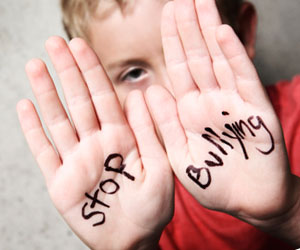
As parents, one of our greatest struggles is how to help our children with their social problems without being overprotective or missing important signs that our child is being bullied or mistreated. It turns out that this is a long-term endeavor, as we are not just getting our children through a rough patch at school, but are teaching them relationship skills that theyll need throughout their lives.
Model Healthy Relationships
Kids learn their relational skills from home. I like to call this the trickledown effect. If we handle conflict well in our home, our kids are more likely to know how to handle conflict at school. Through inexperience, trauma, co-parenting, media, peers and our own poor example at times, our children may end up receiving poor messages about relationships, communication and conflict that leave them vulnerable for social problems. Sometimes your child will be the victim or you may even find that your child is actually the bully. It is important to address what is going on at school (or on the internet) but feel empowered that you can do the most good through the ongoing everyday lessons your practice in your home.
Teaching
Teach your children about confidence, limit setting, kindness and empathy, and how to resolve conflict and ask for help. Abusive people look for those who appear weak, so teach your child to take control by showing confidence and stating their needs. Respect and listen to your child and you will teach them that their voice is valuable. This confidence will help your child address peers directly about conflict whenever possible and speak up when they need help from an adult. Make it clear who your child can go to for help. Lastly, build empathy and kindness. These qualities are instilled when our child demonstrates the ability to attach to a primary caregiver, showing that they have a sense of safety, love and protection. As they grow, we can point out their own reactions to certain people to increase their awareness of the power of relationships. As a family, engage in giving to others, developing a value of kindness and service. Above all, Be Patient; remember that teaching moments usually come in the form of problems or conflict.
Listen and Collaborate
Kids of all ages long to be heard, seen and nurtured (even teenagers!). Make it a point to spend intentional time each week listening and monitoring. You can use this time with your kids to look for what is going right and what might be going wrong. Has their mood suddenly shifted? Are they avoiding school or social situations? Are you seeing odd bruising or marks? Did you see something odd on their Facebook? If you see something that does not seem right, keep exploring. Sometimes this also means engaging in age appropriate monitoring of social situations as well as phone and internet usage. Remember, you are the parent so you can set limits but if your child opens up, do not be too quick to fix the problem. Taking the time (and difficulty) to collaborate with your child on a solution will be a powerful teaching tool!
Be an Advocate and Protector
When our childs wellbeing is being affected, we need to stand up and step in. It is important that we never allow our children to remain in unsafe or abusive situations. You should continue to advocate or set limits until you feel there is a solid safety plan of some kind that your child can carry out. At times, the adults are the bullies and in that case, it is important to take action by reporting them or withdrawing your child from that activity. If you dont know what to do, seek advice.
Know Thyself
Most parents fall into three categories: unaware, overprotective or the tough it out parent that believes kids can handle things on their own. Parenting is a balancing act, so identify your tendencies and strengthen your skills in the areas you are lacking. Humbly look at your own relational strengths and weaknesses, and talk to your child honestly about them as you model how to learn and grow. After all, teaching our children is lifes ultimate learning experience.
Brooke Cone, FCNI Foster Family Development Specialist and Adoptive Parent
To learn about FCNI Foster/Resource Parenting opportunities, call: 805-574-0122
April 20, 2016FamilyCareNetwork
- EDITORIAL & COLUMNS
- Foster Care & Adoption
- Parent Education
- Parenting 0-4
- Parenting 5-12
- Parenting Teens


